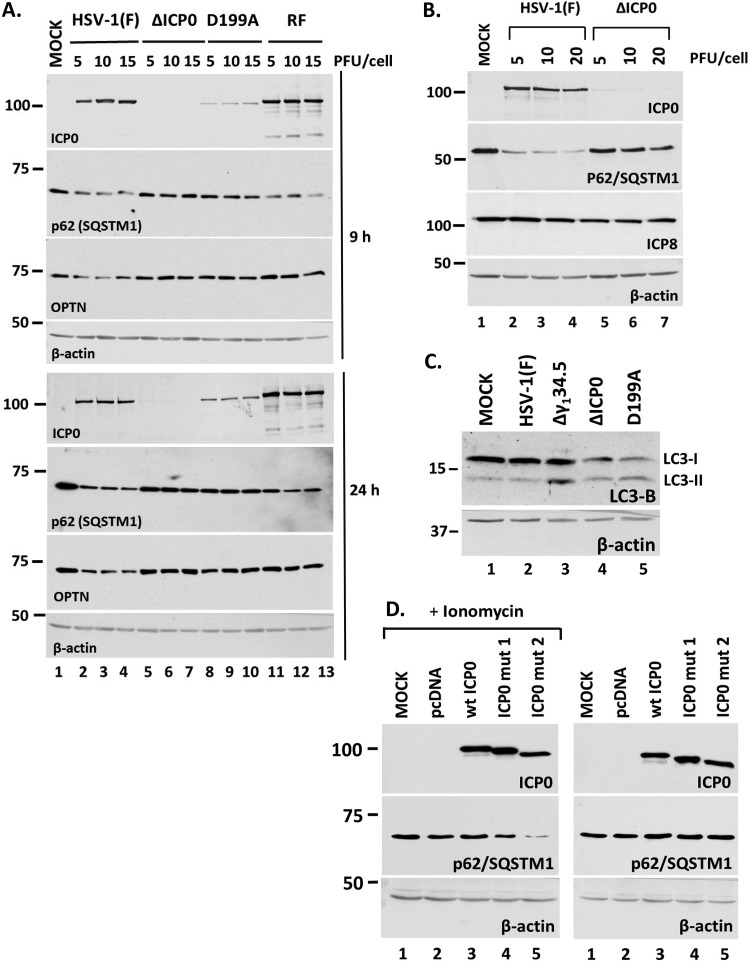FIG 4.
Down-modulation of p62 during HSV-1 infection is dependent on ICP0. (A) HEL cells were infected with HSV-1(F) or the ΔICP0, D199A, or RF ICP0 mutant virus at 5, 10, or 15 PFU/cell. Whole-cell lysates were collected at 9 and 24 h after infection, and equal amounts of protein were analyzed by immunoblot analysis, using antibodies against p62 and ICP0. β-Actin served as a loading control. (B) HEL cells were infected with HSV-1(F) or the ΔICP0 virus at 5, 10, or 20 PFU/cell. The cells were harvested at 9 h postinfection, and proteins were analyzed as described for panel A. (C) HEL cells were infected with HSV-1(F) or the Δγ134.5, ΔICP0, or D199A virus at 10 PFU/cell. Whole-cell lysates were collected at 9 h after infection, and equal amounts of protein were analyzed by immunoblot analysis, using an antibody against LC3-B. β-Actin served as a loading control. (D) HEK-293 cells were either not transfected or transfected with an empty pcDNA vector, a plasmid expressing wild-type (wt) ICP0, or plasmids expressing mutated forms of ICP0 lacking either the NLS (ICP0 mut1) or the NLS and a putative NLS (ICP0 mut2). Ionomycin (5 μM) was added in one set of replicate cultures at 32 h posttransfection for 16 h. The cells were harvested at 48 h posttransfection, and the levels of p62 were determined in equal amounts of cell lysates by immunoblot analysis. All experiments were repeated at least three independent times, and representative Western blots are depicted.

